|
Middle Son has just arrived from out west (Hampshire County, Massachusetts) which is great. However, it is a pretty good indicator that we are too busy for reflection. The Christmas Eve service is as ready as it can be at this point. Presents have either been purchased or failed to be purchased. Everything is either stress, festivity, or festive stress. Oh well...it is what it is! Given the lack of reflection time and whatnot, I have an old video for you. It was recorded in 2019, when we were so much younger than today. I made it to promote the pageant of that year. The video, itself is...rough. Recording things for fun was still a novelty in my profession. It was enough a novelty that wandering around the mall was entertaining. Anyway, here it is! I hope you are all managing to do what you have to do for the time to come.
0 Comments
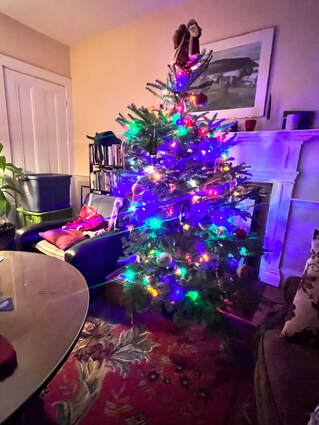 We did finally get the tree decorated at least. We did finally get the tree decorated at least. I am not good at planning ahead. It is something everybody knows about me. Sure, there are discreet areas of my life where I am very organized. Mostly, however, it is a rush to the wire. Right now I am shoring up the order of service for Christmas Eve. It looks fine. As I mentioned yesterday, there are few variations. The biggest one is who does the readings. Yes, I am a bit behind in this part of the holidays, but that is not what I am talking about. Also, church Christmas cards may not get out until after Christmas starts...or never. That is not what I am talking about either. The reasons for the lateness in this area are easily explained by the chaos of the last two weeks. I posted about it. You can read through the Advent collection to find out what I mean. No, the problem is that I should have had a backup plan for today's installment of the Sabbath Walks Advent Calendar that you are reading right now. The fact is, I had planned to report on the annual Eliot Church Solstice Carol sing. However I cannot. I didn't go. You see, we have an unfolding Covid situation in my family and it seemed the best course of action not to potentially infect people. I think we made the right choice by staying home. Still...I miss it. It was easier in 2020 to miss things. Now there is so much FOMO whenever I cannot be in a place. I guess that is what we are talking about today. The Fear Of Missing Out is real all the time, but very telling during the holidays. Those things we get used to doing or those fun one-off events are what give the time its special feel. However, even before the plague we had to cancel from time to time. Each time it is hard. For me, I can go without a lot of the movies and shopping. I can even be good with missing worship. What gets me, though, is when I cannot see people. There are individuals I only see one or two times a year. This season is almost always one of those times. I think this is true for most people. When I was a kid, my parents always held a big holiday party at some point in the season. Some of the people who came were close friends that were in and out of our lives on a regular basis. Others just came to the party and it was fun to see them. I miss that. I miss the gatherings. The Solstice Carol sing is a gathering, even though I know that I will greet all those people again soon enough. I spent the evening by our Christmas tree, looking at seed catalogs. Yeah, I am planning ahead for the spring garden. It is what gets me through winter. I hope that you made it to just as many events as you required. I hope you took in the silent time, too. Either way, we need to remember to reinforce the bonds that hold humans close, even if it is difficult. Good luck on all your plans and all your relationships as we speed to the finish. 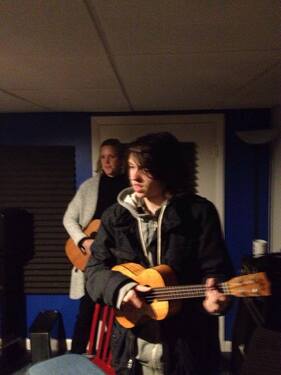 Another thing we did only once was record "Dance of the Sugarplum Fairy" on ukulele. Another thing we did only once was record "Dance of the Sugarplum Fairy" on ukulele. Let's talk about memories for a moment. I am putting the finishing touches on the Christmas Eve service and I have to say...very little changes from year to year. In a way this is strange. Even in church we try to do different things each week. It would be unusual indeed for the hymns and the prayers to be the same every single Sunday! However, with Christmas Eve the opposite is the case. In fact, when changes are made they frequently don't even register. Sometimes we have had a sermon. Sometimes we haven't. Yet if you asked any member whether there is a sermon or not they would say that I never preach at that service. This it true for other elements of the season. In yesterday's post I referenced a number of holiday movies. I can do that with confidence because the same ones are watched by so many people every year. We know them so well. Many know them better than the Bible story. The one big exception seems to be "Hallmark movies". There are new ones every year, which creates at least the illusion of variety. Even those follow a predictable arc. Food, music, decorations, and many other aspects of the season remain the same. What among the holiday trappings is timeless and essential varies, of course, with the person and the memory. Now, there are also people who would rather walk across hot coals than replicate their childhood holidays. There are people who avoid their families. There are those who see variety as the best way to engage with the time. I suspect memory has something to do with that as well. If you never feel comfortable during the season, why the heck would you try to replicate it every year? I get that, too. In fact, a little examination is good. Knowing why we do what we do helps us to understand ourselves and our reactions. Changing it up is important. We aren't merely in the quest for a "new tradition" either. Sometimes we just do a thing one time to see how it feels. Then--love it or hate it--we leave it where it is as a relic of a moment. It is OK to just do a thing once, even if we like it. At Eliot there was the year we had a 9:30 PM folk service on Christmas Eve. It was half open-mic and half lessons and carols. The "9:30" was my idea. We had a group of high school students who were very much into music and who were getting ready to leave for college. I thought it would be fun just this one time. In the end it was...a mixed bag. A few of us had worked and played--and preached--at the 5pm and 7pm services. Family members were annoyed because we had disturbed post-service rituals that had always been exactly the same. Still, I think about it from time to time as a good memory. The church was dark and quiet. The small audience was appreciative. It was, in the end, a fun thing to do to end the Advent season. Would I do it again? Probably not. Yet it wasn't all bad.... Here is a video from that year. We are playing a Frank Turner song. The other person is former youth grouper and now friend, Walker Lambrecht. Occasionally we think of playing this in church again. So far the timing hasn't been quite right... There are many similarities between Lent and Advent. They are both seasons of waiting. They are often both ignored or forgotten by most people since the "big day" is easier to monetize. There are little rituals associated with them that help us to bide the time before Christmas and Easter respectively. Also, if we want to, we can create a spiritual walk for ourselves through daily observations, like writing (or reading) this blog. That Easter and Christmas aren't actually days but seasons is also lost for the same reason. We like short, punchy, easily understood things. Both unfold over time in the midst of everything else. This is different, too. They militate against compartmentalization of life. Yet they are also pretty different. Advent is very much the junior partner in this. So, too, is Christmas. Easter is the "high holy day" of Christianity. Lent is the time to prepare for that day, with--during Holy Week--a series of days all more important than the first day of Christmas. With this in mind, it is easy to think of Advent as a sort of "user friendly" version of Lent. Honestly, easy is just fine. The season is indeed an echo--in theological terms--of its spring counterpart. Waiting for a birth should be less demanding than waiting for a rebirth. That is the big difference. Christmas is about birth. Easter is about resurrection. Christmas isn't really a story so much as the opening paragraph of a story. Now at the beginning of winter we are still able to celebrate. Our stomachs are full from the fall harvest and the first snow sounds exciting. After the long winter we emerge on the other side, looking forward to the return of new life. We love Christmas. We need Easter. We all start somewhere but we hit bumps on the road. We look for personal resurrections to get back to where we now belong. You can see it in the movies we watch. Elf, It's a Wonderful Life, Merry Christmas Charlie Brown, and A Christmas Carol are all really Easter stories set at Christmas time. It is further proof that we aren't celebrating Christmas so much as we are re-naming Yule. In these holiday stories, characters go from joy to sorrow and then are "reborn" back to a better state of being. In the course of It's a Wonderful Life, George Bailey goes from an idealistic kid to a determined adult, then descends into despair, alcohol, financial ruin, and suicide. Finally, through divine intervention he realizes his place in Bedford Falls and understands that even though life is never perfect, he is "the richest man in town". The movie ends ambiguously, too. Mr Potter, the stand in for capitalist power and greed, still looms offstage. Those elements-- the journey from contentment to despair to spiritual intervention to rebirth in an imperfect world--exists in all these holiday specials. This is not surprising. Resurrection is more interesting. We understand disillusionment. We understand tragedy. We know that the hard part is living that life after we are born. We are always in the process of losing and finding our humanity. Of course, one could argue for two films as being closer to Christmas than any other. In the original How the Grinch Stole Christmas the titular character starts as evil and ends up as a pretty good guy. There is no real evidence of a past goodness that he is reclaiming. The goodness is born for the first time within him on that frozen cliff. The other is Die Hard. If we are saying that all these Easter stories are Christmas stories because of snow and holiday greenery...then Die Hard makes the cut. This year I did a lot of experimenting with things that I enjoy. One of them was making YouTube videos of me hiking with my friends. Most of them are not very good. However, as with folk music and most of my other hobbies, excellence was not the goal. They were fun to do and I learned some things. That said, there may not ever be a rebirth of my hiking vids. I just don't have the money or the time to invest in them. I am sharing one here, though. It is really about Lent but hits many of the themes of today as well. Here is looking forward the births that will bring about rebirths in the end. If you are reading this from your home in the northeastern US then you are probably recovering from about 36 hours of chaos. Thanks Climate Change! What the heck was that? It was a "bomb cyclone" and something that we are all going to have to get used to. Regular readers know that one of its early victims was my beloved Subaru Crosstrek. That was just the opening volley of a very strange day. The parsonage is one of a half-dozen old houses built in a swampy spot along the Charles river. In heavy rain our lawns become lakes and so do our basements. The morning scene was quite impressive. It only got wilder as the day went on. Like pretty much everybody in our neighborhood, we quickly lost power. That was all yesterday. This morning we woke up to the general mess that happens when you don't know you are making a mess. Outdoors there was detritus everywhere. Indoors it looked like three humans, three cats, and a dog held a rager all night long. I remember this sort of mess from camping. After all, what is a "camp", tent, or hunting cabin other than a house without power? Yesterday, at 4:30 in the afternoon, I came inside after making a last desperate attempt to save things from my destroyed car. I noticed then that I could no longer read or write without a light source. What had happened was that the storm had kicked up again and the dimming light from the dying day just couldn't penetrate the inside of the house. Without electricity it gets very dark very early and you don't even see all the things that need cleaning. How do we entertain ourselves, much less tidy up from dinner? I have already speculated this Advent on what it must have been like before all our modern conveniences. The stakes were higher for the solstice then. However, it feels like the bomb cyclone of 12/18/23 was a lab project for experiencing things the way our ancestors did. This is what they dealt with every single year. The night grew longer. The storm season came. They needed to make sense of things as they made provision for food, warmth, and shelter. Light, my friends, was a second-tier concern. They told themselves stories as they went to bed earlier and rose later. The "long winter's nap" matched the movement of the sun. People were vulnerable during this time in a way we are not. Given those circumstances, I would be looking for miracles, too. This week--for a short period of time--we were forced to live closer to nature. Yes, some homes had generators, I know. There was one house in our neighborhood like that and we all heard the rumble. The rest of us were dependent on the rise of our primal selves. This was subtle for some and more explicit for others. I used the primal energy to solve numerous basic problems that humans have always encountered. In the drafty old parsonage I needed to grab blankets in anticipation of a cold snap that never arrived. I had to figure out how to cook. To the best of my ability, I tried to keep up with holiday planning at church. We also needed to figure out how to entertain ourselves, which was easier for the humans than the pets. There is a reason that we love our conveniences.
In the end we did settle down to bed a bit early, after chores and last-minute attempts to salvage a day of work. The salvage attempt, by the way, was not successful. I think that with all that has happened lately, God is telling us that this will be an imperfect holiday. Then, after a while, there was nothing to do but wait for a new day... I hope that you all managed to get something out of the darkness. When this has happened to me in the past, I didn't feel that there was as much entropy in my life as there is right now. Still, the ancients managed the seasons all the time, celebrating when it made sense to do so. So...let's manage what we can and celebrate when we can. This is our one life in the darkening earth. We are on the approach now. A week from today will be Christmas! It has been quite a journey with a few stumbles on the way. I have lightly documented them here and you can go back and look if you wish. Today's setback had to do with a tree in the parsonage lawn falling on our cars. Mine may be beyond repair. We are still waiting to hear from the insurance company. The other is doing OK. That it didn't take out both is a blessing, I guess... The thing about setbacks like the car and the ER visit is that they present an emotional risk. We can either drive ourselves into the ground feeling bad about them, or we can put them in a room in our mind as things to deal with in their time. If we do the latter, then maybe we can keep our cool. Perhaps we can maintain some balance in the midst of the mess. So in this case I called the insurance company, filed the claim online, and then sat down to write to you all. I will say though, there has been enough chaos that I am way behind on my holiday stuff. This included both home and work. The church Christmas cards have not been started. I usually make a ton of fruitcakes for people in the church, which also hasn't happened. Much of this has to do with the shortness of the season and the absence of another staff person to help me this year. It is frustrating but...it is what it is and Christmas will come in the midst of the chaos as easily as in a more balanced time. That is to say that some things probably won't get done. That is just the story of the year. So here is my message from yesterday. As I say at the beginning, it is probably the most forgotten piece of preaching I do every year. However, it is about finding balance and feeling emotions that perhaps "the Man" would rather you stuff down or treat with shopping. PS I made a couple pop culture references. It turns out people know who Jerry Garcia is and aren't so sure about Dan Quayle. Oh well, I am batting .500 which is good in some places... Today was a busy one. Pageant Sunday was its brilliant self. As always, the rehearsal was as entertaining as the event. It was fun just hanging out with everyone. There were kids, parents, and random adults preparing for their various roles. People started showing up at 8:30 for a 10am start time. I love pre-church chaos when I can get it. In the old days people arrived earlier to church. These days it takes a special event.
That is fine. I know where most people are on Sundays and you can't get on everyone's schedule all the time. I am always happy to see who I can see. Today that included some former youth groupers who are now adults. They stepped in to play guitars and help support the angel choir. They will always be kids to me. I love to have them around. After coffee hour I had a meeting with our music director, Steve, and our trumpet player, Conor. Conor also happens to be my son. He is among the former-youth-grouper-now-adults group. We took some time to figure out the service for a week from today...Christmas Eve. The three of us have been doing this for years. There will be only one service this year at 5pm, so there are no second chances. There is also so much to do. Anyway, that is what I've got for today. If you weren't in church, then you missed the best pageant ever. Of course, there is always next year... Here is the prayer from this morning. I "stole" it from last year's Christmas Eve service. I will be all about cannibalizing parts this week and writing new stuff when it makes sense. Of course, I think I wrote this, but I am not sure. The holidays come and go and circle back... Prayer Advent 3 2023 Dear God As we celebrate the Christmas story We pray for the strength And the perseverance To accept the lessons of this time In the cold of winter Amidst the distractions of our lives Please help us to find the peace and the confidence To do what is right To reach out Seeking justice through unity With each other and The Divine In our walk of faith we have learned That the spirit of Christmas Does not remove us from where we live But meets us there In all our human mess So God, we pray that You open our hearts To hear the still, small voice That calls us to our better selves And a better world ---Adam Tierney-Eliot Hey There! We are cruising right along now aren't we? It is late on a Saturday but I have it in my head that I will post every day through Advent. I will make it a quick one. The day was taken up with a variety of holiday activities. The morning was about getting ready for Pageant Sunday tomorrow. The afternoon included a trip to watch "It's a Wonderful Life." I always find it a bit of a challenge but it is a nice tradition. What I have for you is an old sermon from 2017. Check it out! I am going to say something that may not be immediately acceptable to everyone. I think that we are a bit too quick to put the pandemic behind us. What I mean by this is that we seem to have rolled right back to "business as usual" and--if we don't pause every once in a while--we are at risk of forgetting what we learned over the past few years. Did it stink to high heaven? Did we all have harrowing stories of one kind or another? We absolutely did. I have written extensively about my own experience during that time. Like you, I have no interest in going back. I do not miss it at all! However, I think we all learned from it and this impacts our lives right now. So much of what I have done since that time is because of what I learned about myself--both good and bad--during the plague. In fact, we are all still feeling the effects in how we move in the world. There is a great deal of striving in the air. Everyone seems to be trying so hard with everything they do. The conflicts we are experiencing--personally and internationally--are connected to the world-trauma we went through. This still needs to be acknowledged. We aren't the same people we were...so who are we? In 2020 at Advent we were in peak pandemic. We had learned new skills and strengths. We had discovered weaknesses we didn't know we had. We were all struggling with restrictions. We were fighting about masking and vaccines. It stank to high heaven. However, we also found ways to work around the restrictions and the disease. We found ways to keep families and communities together. Tremendous effort was put into these things, in fact. Now that we are back together, it makes sense that we want to do what we want. We are gravitating toward individualism after a period of collective action. Still...we have these skills now. We know how to pull together during difficult times. Before you bring up the Covid-deniers, conspiracy theorists, anti-vaxxers, and whatnot, I want you to know that I see them. They are hard to miss. The trauma has made them as well. However, if you are reading this, you probably aren't one of those people. You worked hard to keep things as even as possible. You spent time and effort--mostly thankless--to keep your institutions intact. Good for you! You grew--even in the dark times when you couldn't get off the couch. Now in the chaos of the final days of 2023, it is worth remembering all the good you did. How does all this have to do with the holidays? Well, I think we felt the distance the most in Advent of 2020. The weather changed so those drive-way parties were more difficult. The darkness made the days shorter as always. Also, we couldn't gather like we used to for sacred events like the Pageant and Christmas Eve. We worked so very hard, though. We made a thing that wasn't ideal but that still brought us together. I have over-used the picture of the Eliot Church Ukestra playing by the side of the church on Christmas Eve for our outdoor, socially distanced, carol sing. That, actually, was from 2021. In 2020 things were even harder. But we did it, didn't we? Members of the church worked together to save the congregation from extinction. We gave a gift to the future. We proved we could, in fact, do hard things. So, here are a couple videos. The first is the Christmas pageant! This Sunday, December 17, 2023 we will be indoors as per usual, though it should be mentioned that we have last minute cast changes because of Covid. Every year has the best pageant ever, but first among equals has to be the one below. We embedded it in the rest of a service, but here is the pageant itself...and a bit of a blooper reel before the final hymn. We also did Christmas Eve! Here it is [below] in all its glory. We would not have done these things if we did not love each other. We would not have done them if we did not love the church. I know that sometimes we like to think of ourselves as above emotions. We consider ourselves as too advanced and mature to have faith in anything. We must have faith in something. This would be hard work for people who didn't care. That is all for now. I need to run off and write a teeny-tiny reflection for Pageant Sunday this year. Maybe looking at the hard times and what we managed to achieve will help with today's challenges in the darkening world.
When I was a kid, this machine shed was a big part of my life. I painted it (twice). I helped reshingle it after the world's largest raccoon tore racoon-sized holes in the roof. I learned to sharpen various dangerous farming implements in its back room. I learned to "grease" vintage hay rakes that I would then pull behind a 1948 Ford tractor when I was learning to drive. Perhaps most importantly, it was the base of operations for my grandfather's Christmas tree farm and--therefore--one of the most formative elements in my understanding of how to celebrate the holidays. Even then Christmas and Advent were part of my job. I would spend my summers up on the side of those hills as a teen. My tasks were to mow between the rows, then swing a machete along the edge of a young tree in long, diagonal, downward strokes. News flash: trees are not that symmetrical. I would try (and fail) to avoid the poison ivy, sunstroke, and angry critters who lived at the base in the underbrush. I did manage to not cut myself, which was an achievement considering how much I enjoyed sharpening things. Then we would plant the seedlings for Christmases seven years hence. Planting was the worst. It was heavy, boring work. Thankfully my little brother, Dan, started to come down with me after a couple years. Then I had a friend and ally in my misery. At some point we would head back to school and family. Other relatives (cousins mostly) would help Grampa look after the trees along with the rest of the farm until we could come back around Thanksgiving. Thanksgiving meant tagging and counting the trees, mowing one last time between them, and decorating the machine shed to attract families interested in "authenticity" in their holiday rituals...if authenticity involved cutting your own tree. It also meant dragging the immensely heavy antique sleigh onto the porch of the house. Everyone helped with that. The day after Thanksgiving we would cut one of the largest trees and put it in the front hall of my grandparents' house. It would go up two stories through the hole made by the winding staircase. The day after that we would cut one for ourselves. Usually it was slightly ungainly and unlikely to sell otherwise. Then we would tie it on the car to drive six hours north to our home. Yes, it was a bit "coals to Newcastle" to bring a tree from Dutchess County, New York to Maine. but we weren't the only ones! It was part of our family tradition. It was something from the ancestral home. Eight generations of our family had lived and farmed there. It was something that made my mother happy, a part of her childhood that we would keep in the house for a couple months until it was just too dangerous to comprehend. 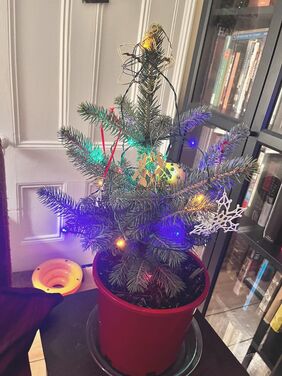 We have a tiny live tree that we will try to coax through the winter. Then--since we rent--we will try to find someone who might want to plant it... We have a tiny live tree that we will try to coax through the winter. Then--since we rent--we will try to find someone who might want to plant it... That is not how we do it now. As an adult in Maine--and well after the family sold the farm--we would still go out to cut a tree. We tried that once here in the suburbs but the poison ivy that encased the trunk was so bad--even in November--that I was sick for a month. I still looked like a goblin by Pageant Sunday. So now we go to some place nearby and just buy one. This year--as I have mentioned--we are slow to get organized. This feels a bit strange. Historically the tree has been a huge part of my own experience of the season. Maybe it is because I have been outside so much and experienced so many trees lately, but the edge is off this year. Also, I have really gotten into plants as a regular thing. As I mentioned a couple days ago, the popularity of all this greenery comes from pre-Christian times. When it is dark and gray and cold, we want something green and living in the house. Maybe it drives the evil spirits away. Maybe it just drives away our own burdens for a moment. I am enough of a pantheist to think it does both. For this reason I have plants around all the time now and in almost every room. Still, it is good to have a Christmas tree. We now have two. they are both smaller than usual. This has to do with space and time constraints...and our four-legged roommates. There is something calming about living things that don't actually care about the holidays, or about the problems of people. We have a cat who find great satisfaction in picking up individual pieces of food, washing them in his bowl, eating them, then doing it all again. We have a dog who will gladly fall asleep on the couch in front of a YouTube fire. We have two other cats with their own issues, but you get the idea. The tree and the plants fill that same function. They reach deep into the primal part of ourselves. Maybe they just help us to. Either way, that is where our humanity is. Yesterday I was talking about mental health during this time. I brought up a few examples of things that might help us care for ourselves and for each other. This is another one. Go out in nature if you can. Bring it inside if you cannot. You can also do both. I hope you are all able to turn off the noise as we get closer to Christmas Day. The holiday is not about what we do. It is about what is. It is a time to just be, not as a modern with modern concerns, but as a deep part of the life around us. We are people who gather plants and animals. We are people who decorate sacrificial evergreens. We aren't nearly as sophisticated as we think...this is right and good.
|
Adam Tierney-EliotI am a full-time pastor in a small, progressive church in Massachusetts. This blog is about the non-church things I do to find spiritual sustenance. Archives
June 2024
Categories
All
|
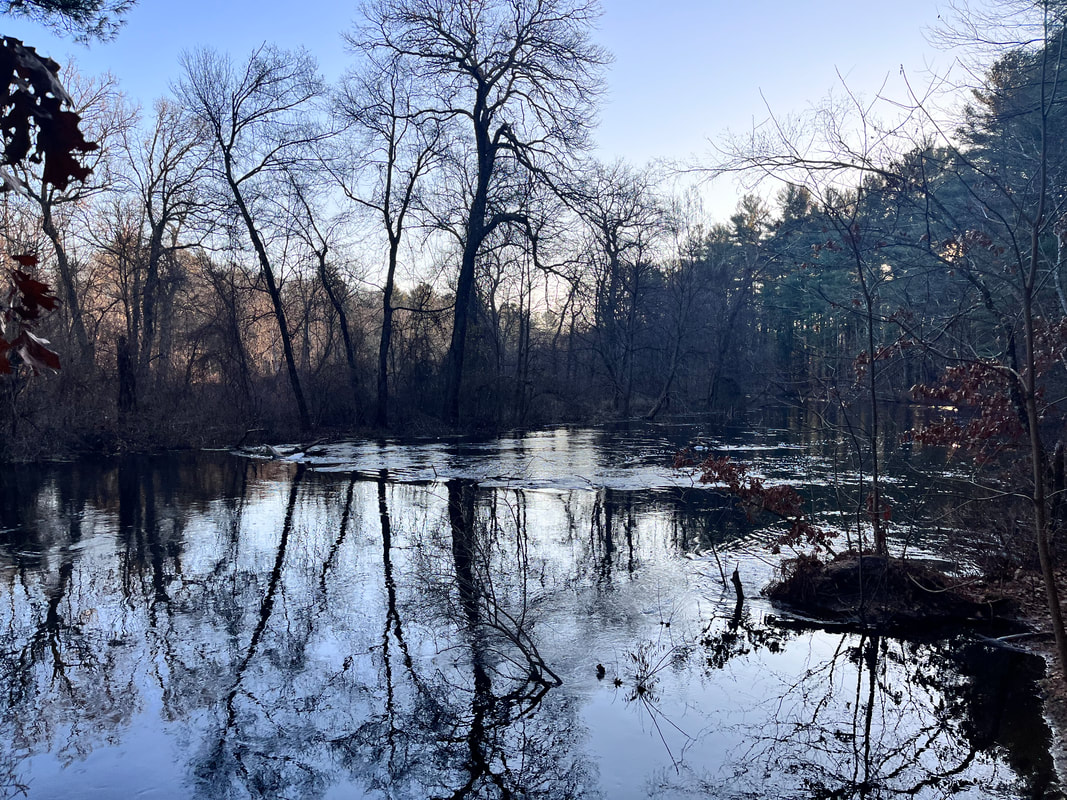
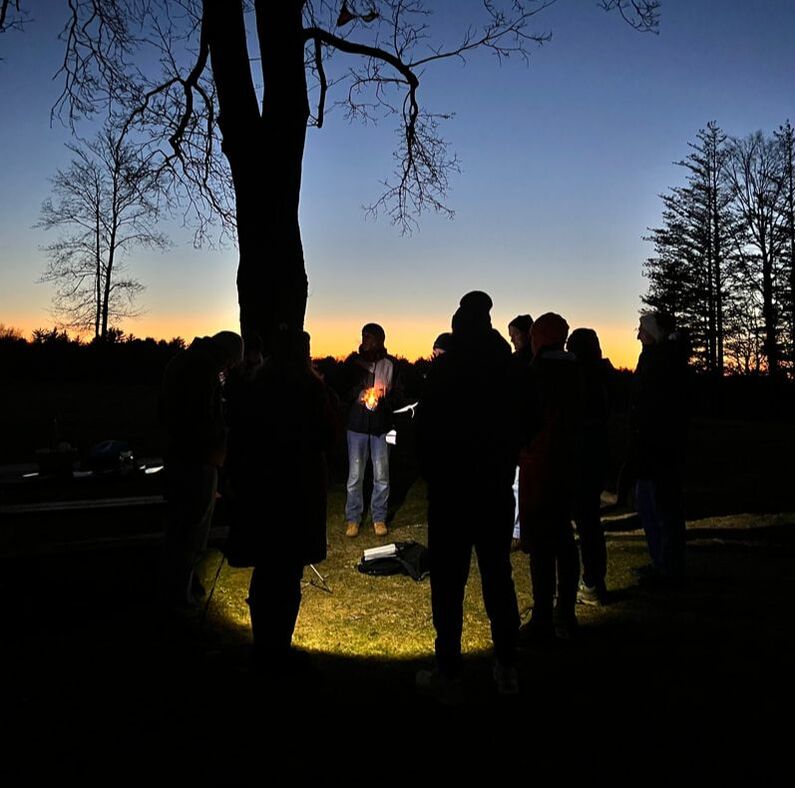
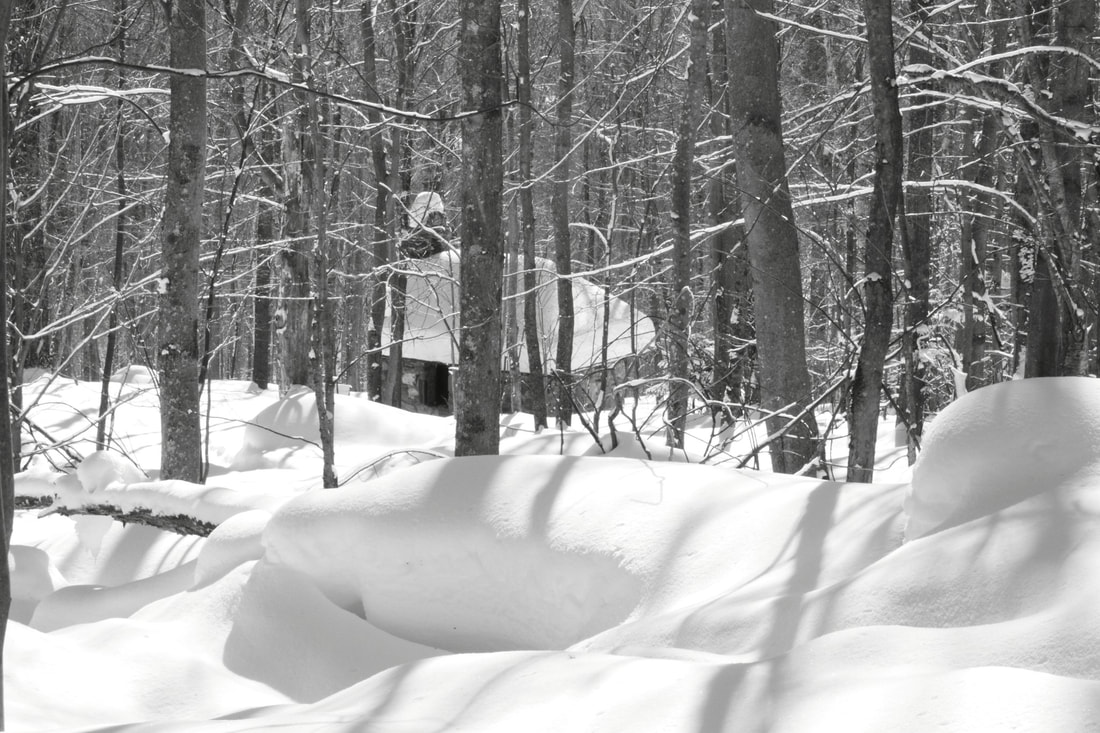
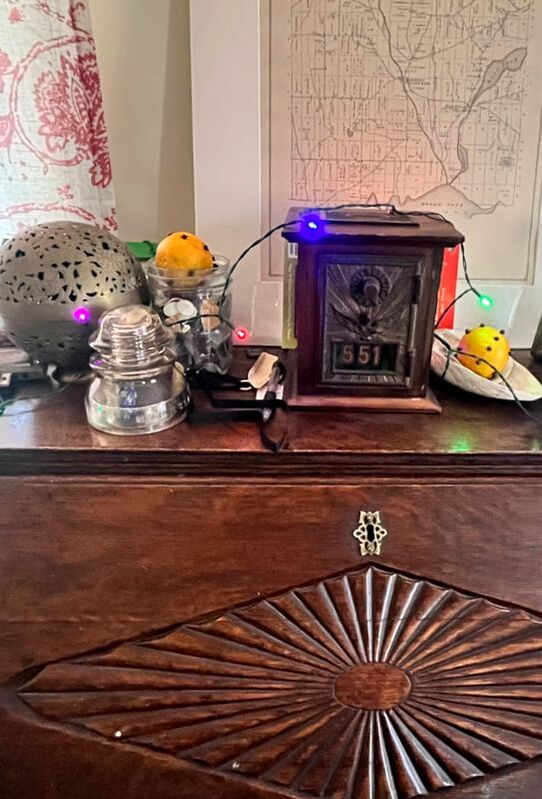
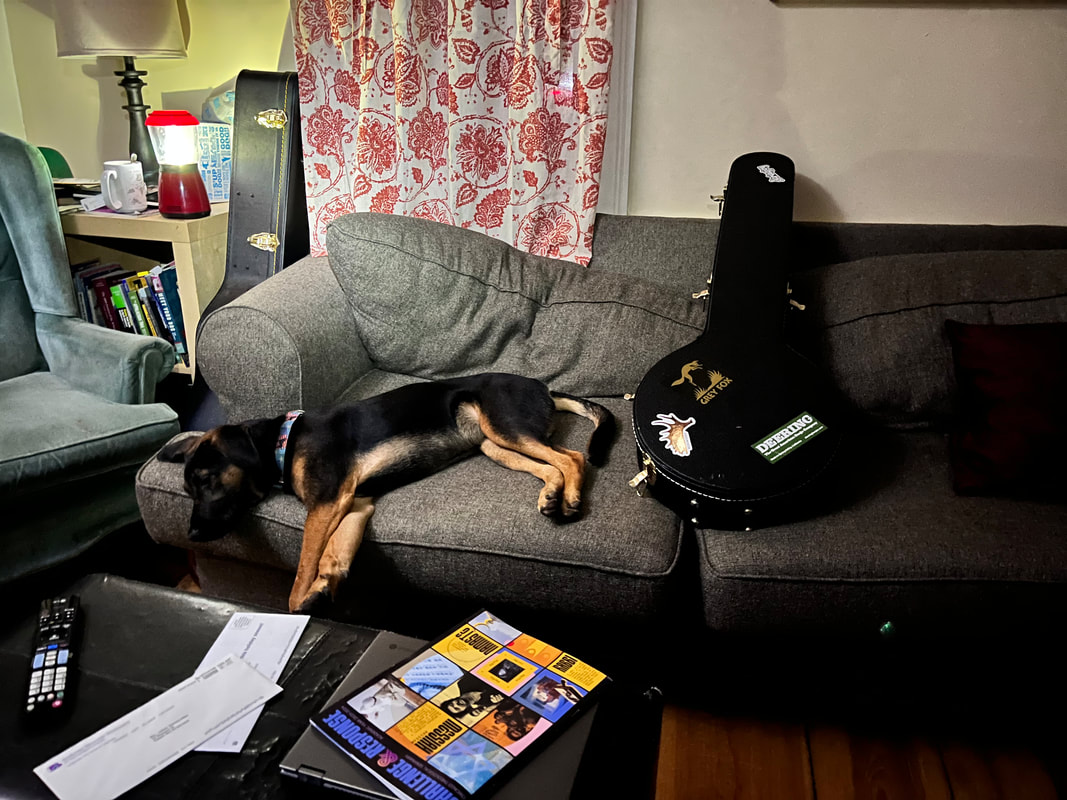
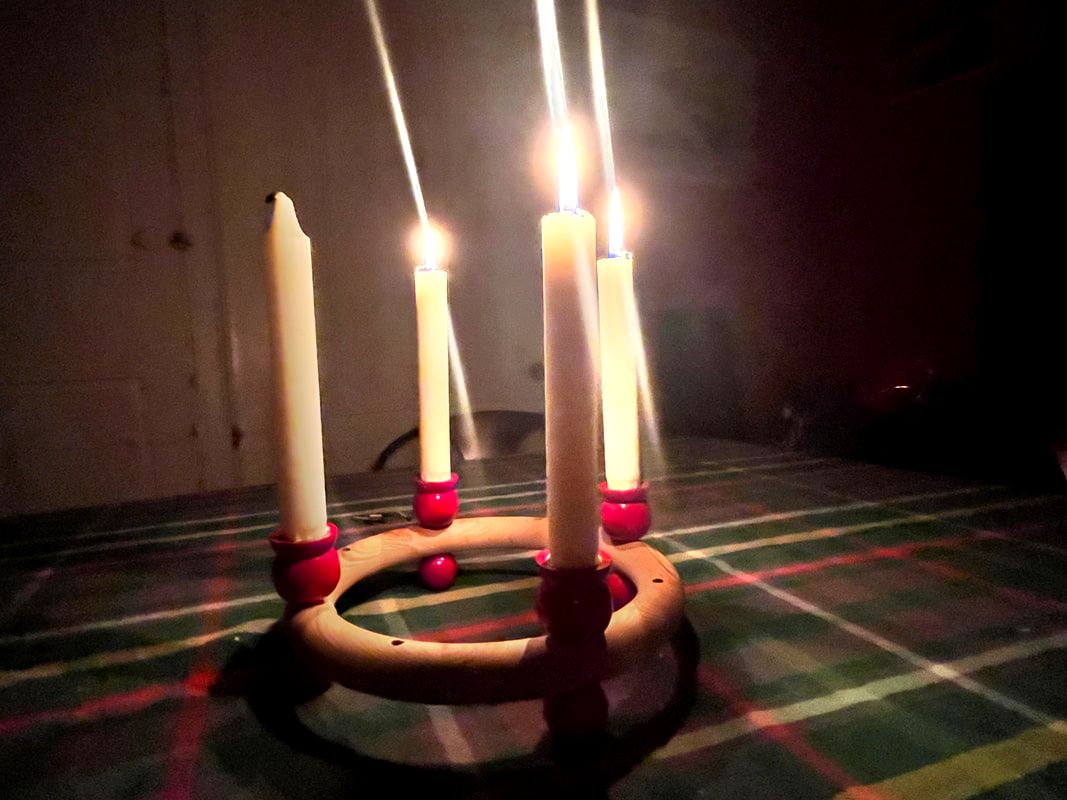
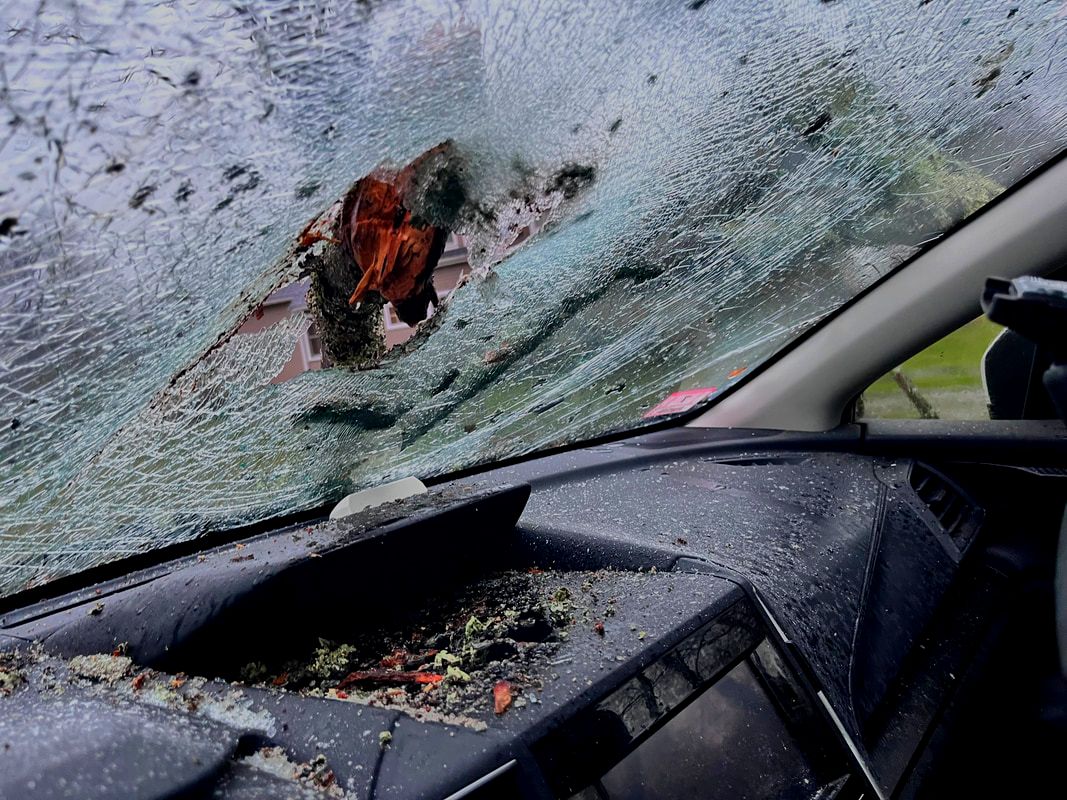
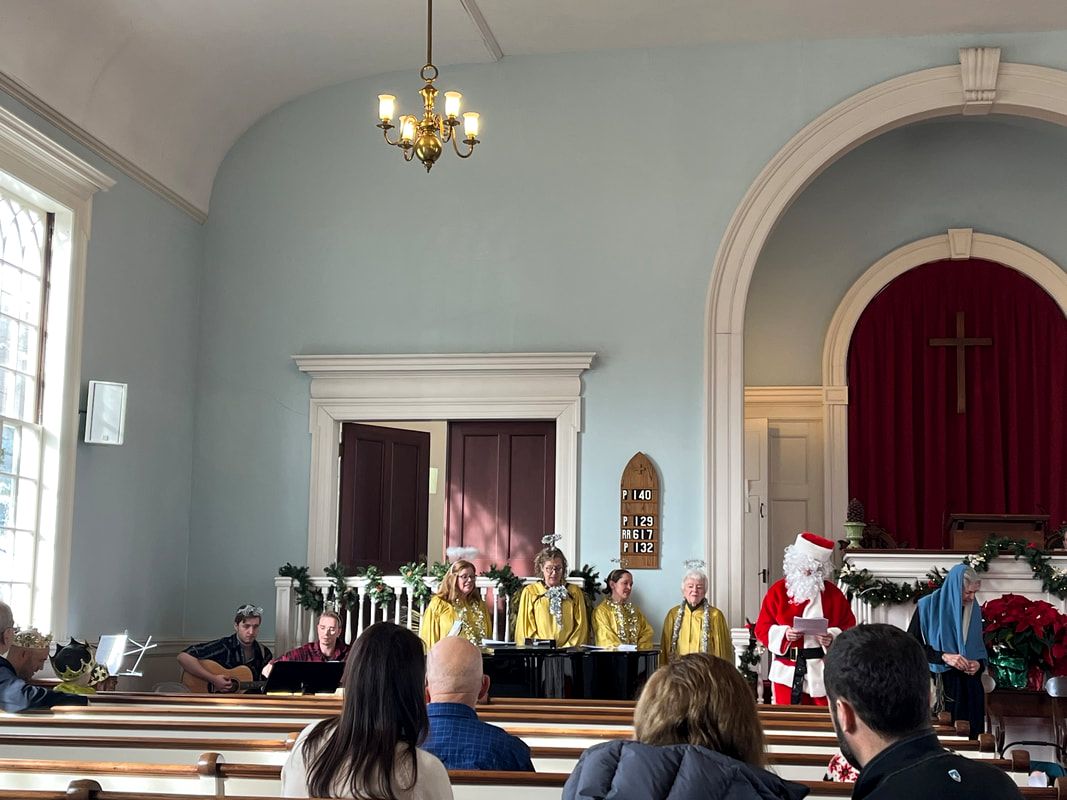
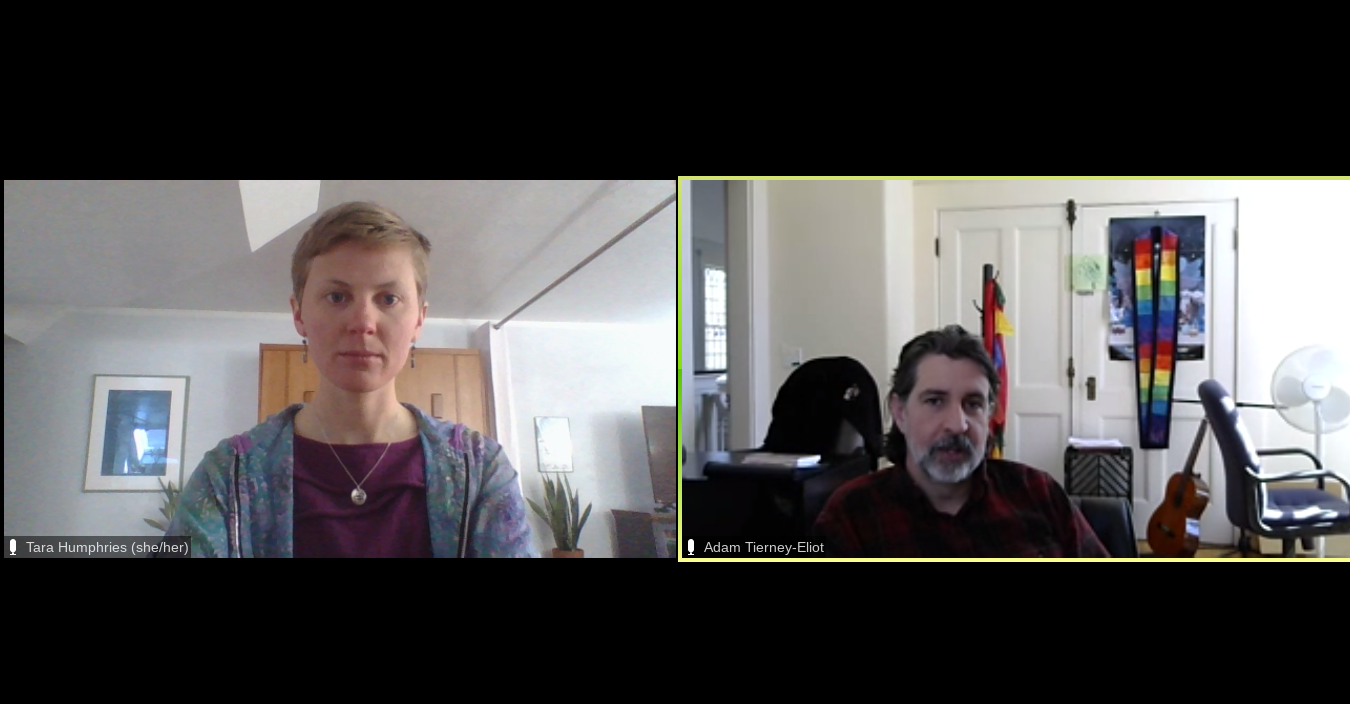
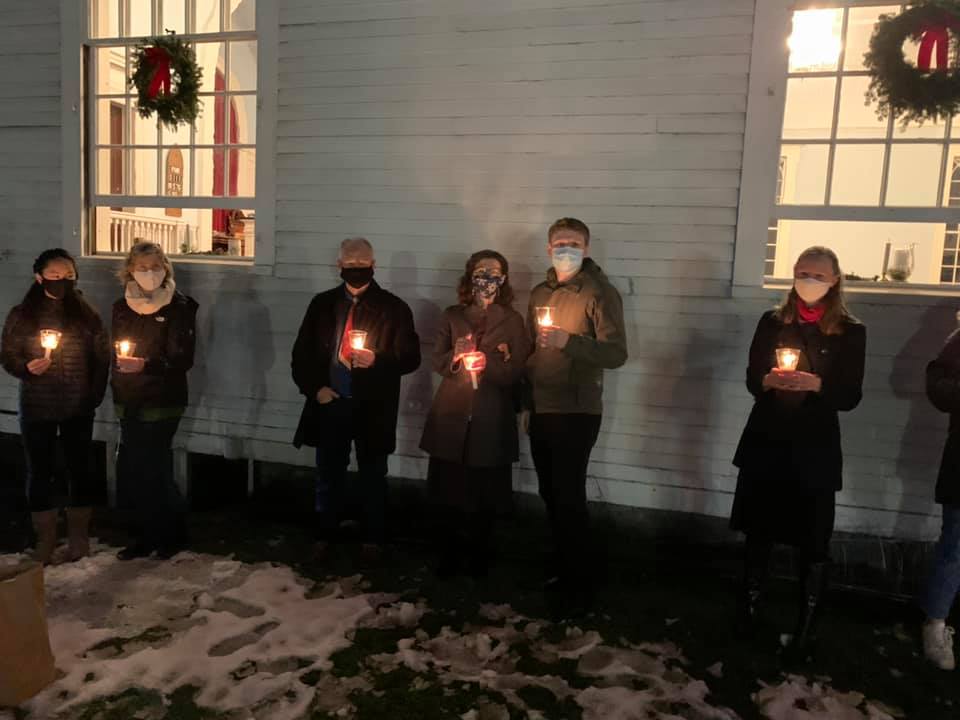
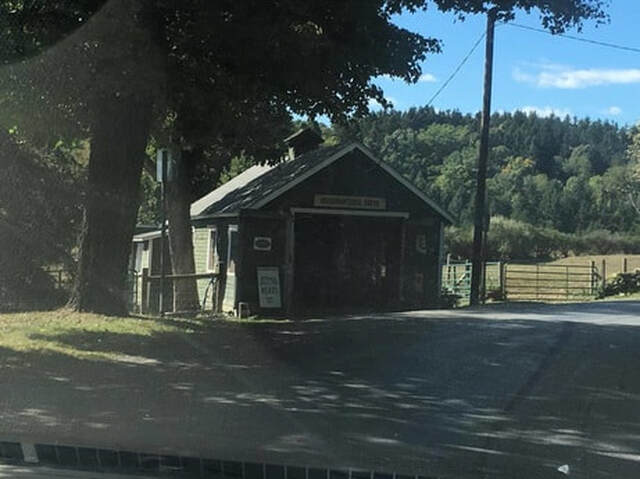
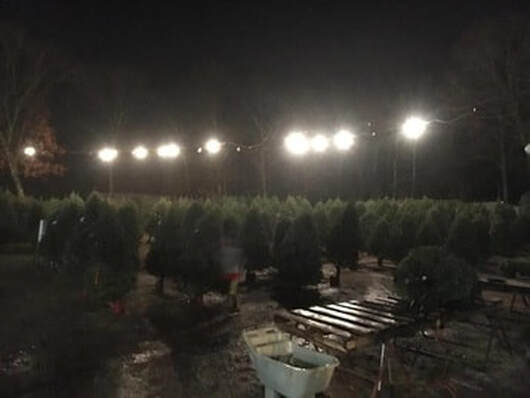
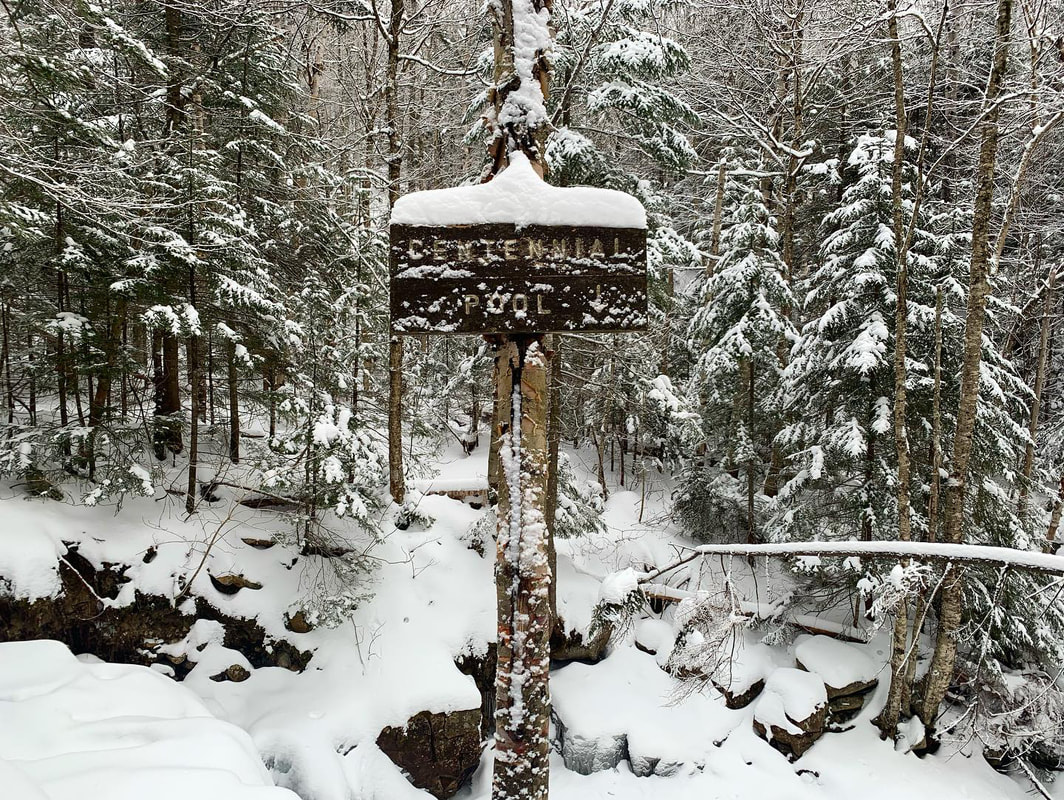
 RSS Feed
RSS Feed